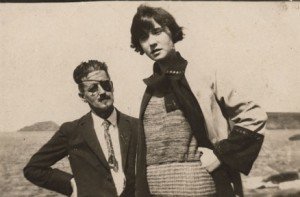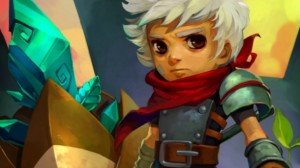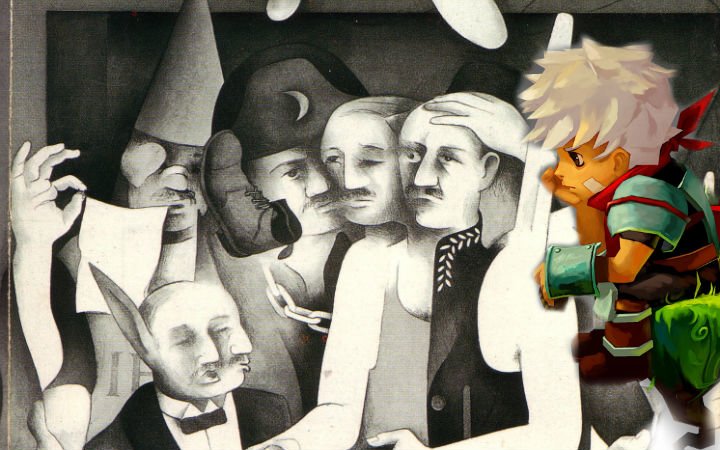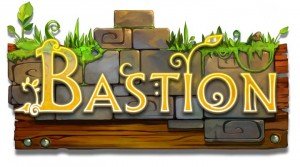Over the past year, I have made it my personal mission to hunt down the links between literature and video games, and I have found some startling connections (Mega Man and Dante Alighieri’s The Divine Comedy being my personal favorite). Whether it’s blatantly obvious, like Bioshock and Ayn Rand’s Atlas Shrugged, or not so clear cut, like Red Dead Redemption and The New Testament, these connections are waiting to be found in almost every game out there.
For this article, it will be a game that has very little in common with the piece of literature at hand; however, I feel that as time goes on, people will refer to this game in the same way they refer to the book: as a turning point in the medium. The game I am talking about is the amazing downloadable title Bastion, crafted by Supergiant Games, and the novel is Ulysses, written by James Joyce. The latter is widely lauded as the most influential novel of the 20th century.
Ulysses is a voluminous, and some would say indecipherable, tome, written by James Joyce–who was not only the most influential author of  the 1900s, but the coolest man ever (look at that picture!). It follows one day in the life of a Dubliner named Leopold Bloom. The story resembles Homer’s The Odyssey quite magnificently, bringing many aspects of the classic tale into an updated setting. However, its biggest accomplishment was the popularization, if not the introduction, of the “stream of consciousness” writing style. Stream of consciousness is just as its name states: it is a style that is the best literal translation of the way a human mind thinks.
the 1900s, but the coolest man ever (look at that picture!). It follows one day in the life of a Dubliner named Leopold Bloom. The story resembles Homer’s The Odyssey quite magnificently, bringing many aspects of the classic tale into an updated setting. However, its biggest accomplishment was the popularization, if not the introduction, of the “stream of consciousness” writing style. Stream of consciousness is just as its name states: it is a style that is the best literal translation of the way a human mind thinks.
Bastion also utilizes a form of stream of consciousness; Rucks constantly narrates the story, including many moves the player decides to take. If you stand still for a while, Rucks is likely to comment on that; if you destroy random pieces of the setting, he will also make a mention of that. What you do changes what the narrator says. It’s a major part of what has made Bastion such a celebrated game, and it is, quite possibly, the closest a video game can come to actual stream of consciousness, at least at this technological level.
That is not the only thing that resembles Ulysses, though. In Bastion, The Kid is wandering through the Bluffs and hears a beautiful voice singing softly. He fights off many enemies and goes through many dangerous areas to reach the source of that voice, eventually finding another survivor, Zia. While Zia is a good guy, it’s hard to not notice the similarities of this situation to the incident with the Sirens in The Odyssey. The Sirens called out to passing sailors, singing a beautiful song, and leading them to their ultimate demise upon the rocks of the Sirens’ island. In Ulysses, the Sirens take the form of a pair of barmaids who lure men in with their lascivious talk and the music of the bar. Ultimately, they are as harmless as Zia, making the connection with Bastion a little bit stronger.
For my money, however, the greatest connection between the two is the impact. Ulysses was named the greatest novel of the 20th Century by the Modern Library. Joyce has influenced almost every author to come after him, and basically invented a new writing style. His accomplishments cannot be overstated. I believe that Bastion will eventually be seen in the same light.
This game creates an  atmosphere that is second to none. The fact that it has introduced stream of consciousness storytelling to video games is revolutionary. I feel that this is going to quickly catch on with developers as an interesting and fresh way to tell a story. The emotional impact of the story is also something to be reckoned with; I have never had a video game make me feel as torn as the end of Bastion did. It was masterful. Bastion did what many other games have attempted, and failed: it made a downloadable title relevant to the industry as a whole. It was nominated for awards that apply to AAA titles as well.
atmosphere that is second to none. The fact that it has introduced stream of consciousness storytelling to video games is revolutionary. I feel that this is going to quickly catch on with developers as an interesting and fresh way to tell a story. The emotional impact of the story is also something to be reckoned with; I have never had a video game make me feel as torn as the end of Bastion did. It was masterful. Bastion did what many other games have attempted, and failed: it made a downloadable title relevant to the industry as a whole. It was nominated for awards that apply to AAA titles as well.
Bastion is a game that will change things, just as Joyce’s masterpiece changed literature as we know it. While the connections between the two are not as strong as others, it has a much deeper spiritual connection. Both are game-changers, and both are introducing new aspects of their respective art form.
For me, it is extremely enjoyable to find these types of relationships. They are important to the future of the arts that we love. Video games are yet to be seen as art by a majority of people, and reinforcing their connection to other art forms will strengthen that argument. I plan on hunting down many more of these video game/literature crossovers, and I hope everyone will join me.


